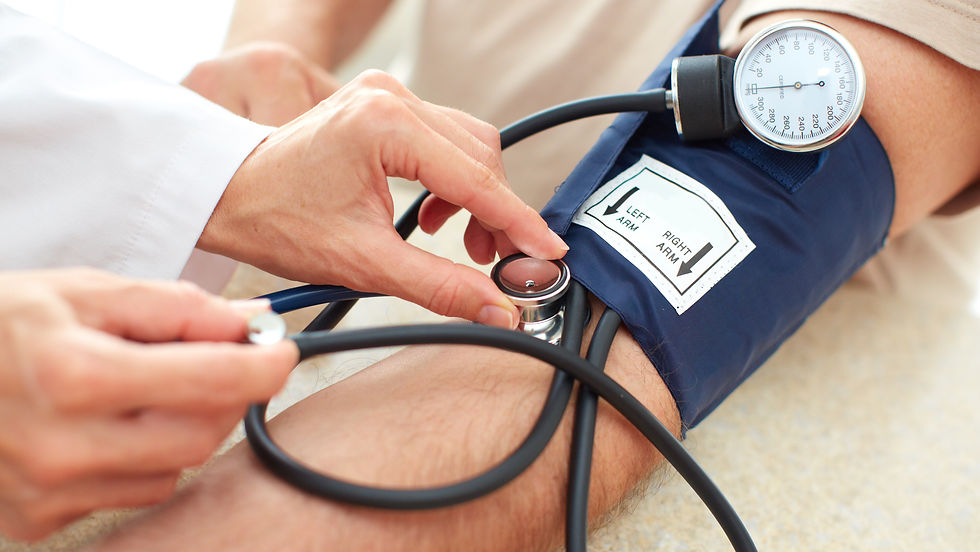High Blood Pressure - 5 things you can do today!
- Marnie
- Mar 21, 2019
- 2 min read
Updated: Dec 9, 2024

High blood pressure is a condition that responds well to diet, lifestyle and nutrition. The mainstream approach is to treat with beta-blockers, diuretics, calcium channel blockers, etc. This may be helpful in acute cases or situations when the blood pressure is very high, but for most, a natural approach can reduce dependence on these medications, which do not come without significant side effects.
Here are five things you can do to help either get you off medications or prevent you from having to go on them at all!
1. Reduce excessive refined carbohydrate and/or sugar intake
Often times people who have high blood sugar and may be insulin resistant are more at risk the development of hypertension, so it is best to stick to whole-food carbohydrates like potatoes, sweet potatoes, and fruit instead of refined grains and sugars.
Always try to have your carb intake match your activity levels (the more active you are the more carbohydrates you may need; individual goals and insulin sensitivity will also come in to play here).
2. Increase your intake of minerals
Often times people who have hypertension are in need of minerals. You can start by adding more potassium, calcium and magnesium rich foods.
potassium-rich plant foods like white potatoes, bananas, and tomatoes.
increase calcium intake through dairy products, bone-in fish, nuts and seeds, and leafy greens
magnesium intake can be increased through pumpkin seeds, almonds, dark, leafy greens, molasses, dark chocolate, and bananas
Bring in LMNT to increase your potassium levels - Consuming fewer than 3 grams of sodium per day is associated with higher rates of adverse cardiovascular events and death. After all, electrolytes help send the signals that tell the heart to beat, and low blood sodium levels can stress the body (raising blood pressure). Adequate potassium intake can also improve hypertension by relaxing blood vessel walls.
3. Drink tea
Certain types of tea are effective at lowering blood pressure; these teas include hibiscus, hawthorn, gotu kola, oolong, and green tea
In order to see a benefit it is best to drink two to three cups per day (total; a combination of the above teas is most effective) to lower blood pressure.
4. Eat beets
Beets are high in nitrate, which turns into nitric oxide and can promote vasodilation and lower blood pressure
Other foods high in nitrates include celeriac, chinese cabbage, endive, fennel, kohlrabi, leek, parsley, celery, lettuce, spinach, and rocket
Beet juice has been shown to lower blood pressure in studies
5. Reduce stress
Chronic stress is a well-known cause of high blood pressure and it is important to remember stress comes in many ways: environmental, physical, emotional, and nutritional. So, many times it is evaluating where the stressors are coming from that makes a big impact on hypertension.
One way to reduce stress is through meditation and deep breathing. These are two incredibly effective strategies that can be used daily to lower blood pressure.







Comments